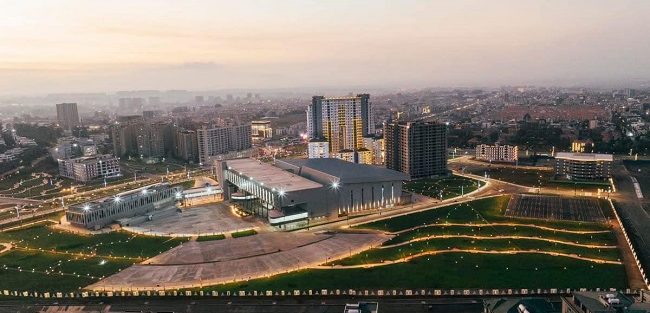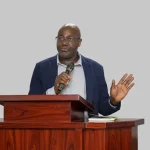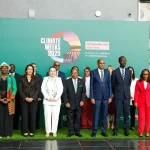The UNFCCC’s Africa Climate Week (ACW) 2025 is in full swing at the Addis International Convention Centre (AICC). Participants from all over the world have gathered to hold conversations centred on moving beyond ambition to implementation.
Although relatively different from the city-wide nature of the London Climate Action Week and even recently, the Rio Climate Action Week (RCAW), ACW is packed with loads of programmes aimed at motivating engagements, especially bilaterally, that will further advance Africa’s position in the landscape of global climate action.

Within the first two days, we have witnessed key events such as NDC clinics with high-level engagement by key stakeholders and donor organisations working on providing implementation support for key aspects of the NDCs 3.0 of countries; the breakout sessions on the UAE Just Transition Work Programme; brainstorming sessions on adaptation finance; and critically, series of open-access meetings aimed at capacity building for accessing climate finance.
Aware that this is a critical year for NDCs and bearing in mind that this iteration must reflect not only increased ambition, but also address implementation challenge – finance being key – the NDC clinics take on added importance as they present an interactive clinic for shared ideas and careful mapping of the way forward hinged on professional expertise and local experiences.
Conversations on adaptation finance in particular and capacity building on how to access climate finance are both also central and align with the NDC issue. Africa needs climate finance to not only tackle climate adaption challenges, mitigate emissions, seek for ways to deal with the losses and damages from climate impacts, but also to position itself for sustainable development. These sessions, from NDC clinics to capacity building on accessing climate finance are thus critical and as expected, at the soul of the Africa Climate Week.
Curiously, as you navigate from one room to the other, and interact with participants from across the world, one thing immediately strikes you as an African – the absence of subnational actors at these very important sessions. This absence resoundingly points to an ongoing pattern of limited subnational participation in key climate conferences where they can learn, build alliances, and position themselves to be more impactful.
At almost every key climate change event, representatives of the national government dominate with little or no participation by the subnational actors who, indeed, should be at the frontline of climate action.
This absence of subnational actors’ voice – the real implementers of climate action and those who bear the direct brunt of extreme climate change vulnerabilities – is reflective of not just national disregard of their importance, but also of the lack of awareness by the subnational of their own importance.
This blatant disregard of the subnational and the key role they play has been the subject of many international, regional, national, and subnational engagements by the Society for Planet and Prosperity (SPP) most of which are geared towards enhancing the capacity and awareness of subnational actors in the climate discourse, while also consciously ensuring that they retrieve their right of place at the table.
It is often the case that at the end of gatherings such as this, many are quick to tag them as climate “razzmatazz” with no concrete impact on the continent. Yet, we forget that oftentimes, what makes a gathering impactful does not necessarily have to be the line up and depth of events, but also how much each country makes concrete efforts to ensure that the right people – in this case the subnational actors – are part of the process.
Indeed, it is important that subnational actors should not be missing during these technical sessions of knowledge sharing and exchanges hence it is highly imperative that priority is accorded them to participate at these events with adequate funding. It is only when the right people are in the room, will they be able to learn, contribute to shaping the process, and finally lead implementation.
By Nnaemeka Oruh and Gboyega Olorunfemi, Senior Policy Analysts, Society for Planet and Prosperity (SPP), in Addis Ababa






